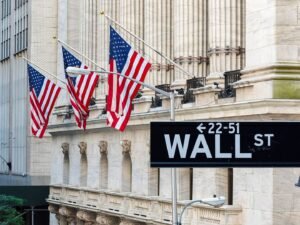Bitcoin Treasury Activity Surges: A New Institutional Era
The week between June 30 and July 4, 2025, witnessed an unprecedented surge in Bitcoin treasury activity, with both startups and established corporations making noteworthy moves. A total of 54 announcements came to light, revealing that over 8,400 BTC had been funneled into corporate wallets. This heightened activity marks one of the most significant weeks for Bitcoin treasury growth witnessed in 2025, indicating a growing institutional interest in Bitcoin as a long-term asset.
Figma Leads the Charge with a Major Investment
Among the most surprising disclosures was Figma’s announcement of a $69.5 million investment in Bitcoin, equivalent to approximately 843 BTC, as outlined in its S-1 registration. This decisive move positions Figma alongside other companies that are adopting Bitcoin as a strategic reserve asset. New entrants like Cel AI and Opyl Limited also made their first purchases, signifying a broader trend where companies embrace Bitcoin to bolster their financial standing. Similarly, Amber International revealed a $25.5 million private placement aimed at establishing a robust Bitcoin treasury strategy.
Institutional Momentum Builds for Bitcoin Adoption
Throughout this significant week, various firms showed increased enthusiasm towards Bitcoin as a core financial asset. For instance, Blue Star Capital raised $1.7 million to gain indirect exposure to Bitcoin, while Metavesco launched an official Bitcoin treasury program. Additionally, the Fragbite Group from Sweden added about $530,000 to its reserves, contributing to an evolving narrative surrounding Bitcoin in corporate finance. Notably, 18 firms actively added Bitcoin to their books, amassing a collective total of 7,591 BTC. This exemplifies a growing perception that Bitcoin is not merely an alternative asset but a vital component of modern financial strategies.
Companies Expand Their Bitcoin Treasuries
The trend does not appear to be a one-time phenomenon; 14 companies disclosed ongoing plans to expand their Bitcoin treasury holdings. Renowned food company DDC Enterprise stands out by raising $528 million to bolster its Bitcoin reserves, highlighting the significant institutional backing behind this strategy. These firms are not looking at Bitcoin as a fleeting trend; rather, they are treating it as a cornerstone for diversification and long-term value retention. This shift towards Bitcoin treasury acquisitions underscores a collective belief in the cryptocurrency’s potential stability among traditional finance.
Bitcoin’s Role in Modern Financial Strategy
In addition to these financial maneuvers, six other disclosures related to Bitcoin treasury strategies emerged, ranging from corporate policy updates to detailed institutional plans. While not all of these announcements linked directly to Bitcoin purchases, they contribute to greater transparency concerning how companies are adopting Bitcoin into their financial frameworks. This week confirms a cross-industry movement where firms globally are re-envisioning Bitcoin’s role, transitioning it from a speculative asset to a fundamental element in their contemporary financial strategies.
The Future of Bitcoin Treasury Integration
As more companies announce their interest in Bitcoin treasury strategies, the narrative surrounding cryptocurrency continues to evolve. Bitcoin is establishing itself as more than just an investment vehicle; it is becoming an integral component of corporate financial planning. This transformation begs the question: how far can Bitcoin treasury adoption go? As institutional frameworks adapt and evolve, Bitcoin’s role as a strategic reserve asset looks increasingly secure—a development sure to attract more participation across various sectors.
In conclusion, with major announcements and increasing corporate involvement, the landscape for Bitcoin treasuries is experiencing a transformation. The week under review not only highlights significant investments and interest but also foreshadows an era where Bitcoin may increasingly anchor corporate financial frameworks. As this trend gains momentum, it holds the potential to redefine not just how companies manage their finances but also how they perceive and utilize digital assets in the long term.

















